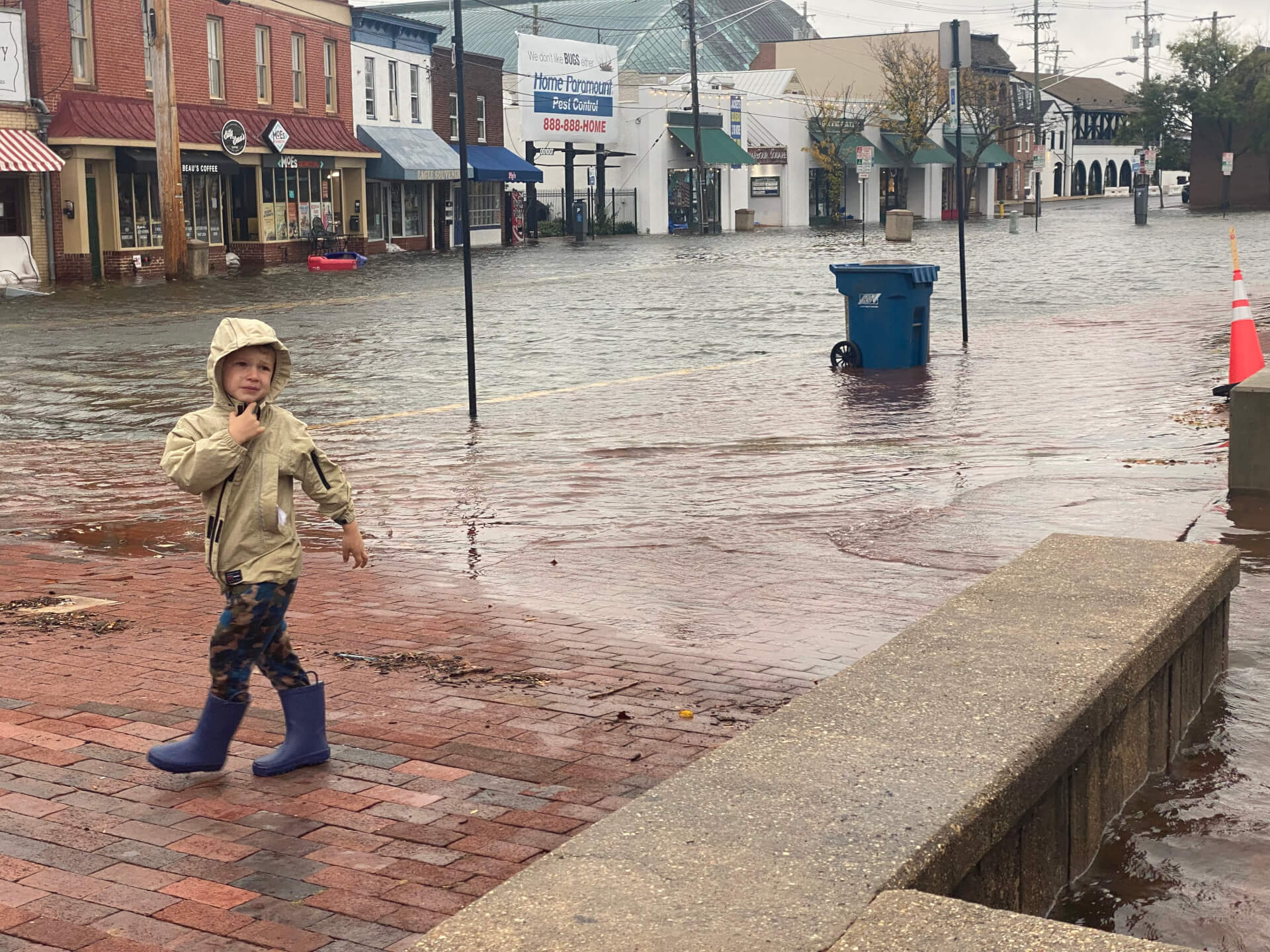‘A Moment of Incredible Opportunity’: Dem Candidates for Governor Talk Climate

Days after some of the worst coastal flooding in Maryland history, and as thousands of activists and government leaders gather in Scotland for an international summit on the climate crisis, six of the nine Democratic candidates for governor met for a virtual forum on climate change Monday night.
On a range of issues, the candidates were largely in accord: State government must accelerate clean energy standards, do more to encourage the development of renewable energy, phase out fossil fuels, improve public transit systems, and confront environmental inequities in communities of color. But there were differences in strategy, emphasis and rhetorical flourishes.
The forum, sponsored by the advocacy group Climate-XChange Maryland, drew former Clinton administration official Jon Baron; former Attorney General Douglas F. Gansler; former U.S. Education Secretary John B. King Jr.; former Obama administration official Ashwani Jain; former Democratic National Committee Chair Tom Perez; and Baltimore tech entrepreneur Michael Rosenbaum.
Missing from the forum: former Prince George’s County Executive Rushern L. Baker III; Comptroller Peter V.R. Franchot; and author and former nonprofit CEO Wes Moore.
King twice used the event to throw shade at Franchot, highlighting votes he took as a member of the Board of Public Works to advance a Hogan administration proposal to widen the Capital Beltway and Interstate 270 and to approve construction of a new natural gas pipeline on the Eastern Shore.
“One of our challenges is we’ve had a governor and a Board of Public Works, including Comptroller Franchot, who have prioritized highways over everything else,” King said. He added that term-limited Gov. Lawrence J. Hogan Jr. (R), in canceling the Red Line transit project in Baltimore six years ago, was practicing “dog whistle politics.”
Gansler, as he has throughout the primary campaign, sought to draw distinctions between himself and the other Democrats on the basis of his experience in Maryland government, saying he was the sole candidate who had dealt with environmental challenges at the state level.
“The reason why you know I’m going to tackle climate change is I’m the only one who’s done it that you’re going to hear from on this call,” Gansler told the environmental activists listening in. Later he said that he alone knew how to handle “the levers of state government.”
For the most part, the Democrats agreed that the state is at a crossroads — forced to tackle increasingly catastrophic conditions brought on by a warming planet but also presented with a chance to build a durable clean energy economy.
“This truly is a moment of such danger but I also think it’s a moment of incredible opportunity,” Perez said.
Rosenbaum said state government should use Maryland’s leading institutions — from Fort Meade to NASA to the National Institutes of Health to its universities — to help develop clean energy in the state.
“Maryland should be the geographic center of the industry,” he said.
While all candidates vowed to boost the state’s transit system, Jain, who said his campaign is “100% volunteer-run, crowd-sourced policy, 100% free events,” distinguished himself by saying he would make riding all transit systems controlled by the state free (that would be Maryland Transit Administration bus routes, subway and light rail in the Baltimore area and the MARC commuter trains).
And while all candidates said the state should wean itself off fossil fuels, Baron was less critical of the Board of Public Works’ decision earlier this year to approve the Eastern Shore natural gas pipeline, which is bringing gas from Pennsylvania to communities that have previously relied on oil and coal to power their homes and businesses. He noted that even with the expansion of natural gas in the state over the past decade and a half, Maryland has cut carbon emissions by 40% while maintaining a robust economy.
“This is a bipartisan success story over the past 15 years,” he said, adding that he wanted “to emphasize the interim nature” of utilizing natural gas in Maryland.





 Creative Commons Attribution
Creative Commons Attribution